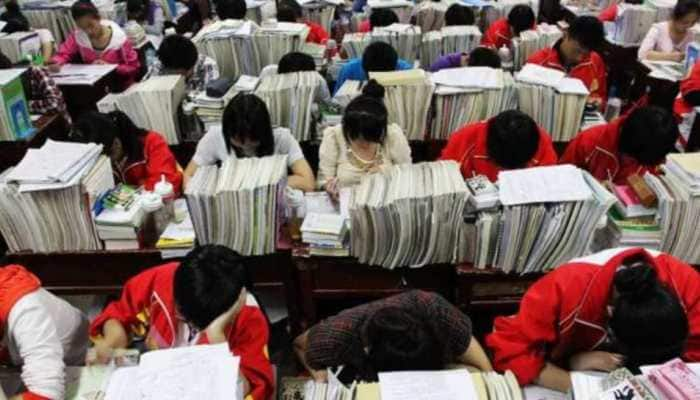RBI calls coronavirus COVID-19 threat unprecedented, cuts repo rate by 75 basis points to 4.4.%
RBI on Friday (March 27, 2020) cut the Repo Rate by 75 basis points to 4.4 per cent and slashed Reverse Repo Rate by 90 basis points to 4 per cent as part of measures to ease the pain on banks and industries which are suffering from the lock down as he called coronavirus pandemic an ''unprecedented threat and invisible assassin''.
Trending Photos
)
New Delhi: Calling the coronavirus COVID-19 pandemic an ''unprecedented threat and invisible assassin'', the Reserve Bank of India (RBI) on Friday (March 27, 2020) cut the Repo Rate by 75 basis points to 4.4 per cent and slashed Reverse Repo Rate by 90 basis points to 4 per cent as part of measures to ease the pain on banks and industries which are suffering from the 21-day lockdown.
This was announced by RBI Governor Shaktikanta Das,who said, “Repo rate has been reduced by 75 basis points to 4.4.%. Reverse repo-rate reduced by 90 basis points to 4%.’’ He added that the RBI Monetary policy committee voted 4:2 majority to cut 75 basis points to 4.4 pc during its meeting between March 25-27.
He further informed that the Cash Reserve Ratio of all banks has been reduced by 100 basis point to 3% from March 28, 2020 for a period of 1 year. This will release 1.37 lakh crore. Describing the Coronavirus pandemic as an ''invisible assassin'', the RBI chief said that all these measures will release 3.74 lakh crore into the system and ease pressure on the banks.
Th central bank also permitted all banks and lending institutions to allow a 3-month moratorium on all loans. ''All lending institutions allowed to defer interest on working capital repayments by 3 months. The moratorium on term loans, deferment of interest payment will not result in asset classification downgrade and banks may reassess working capital cycle. It will not be treated as NPA,'' the RBI Governor said.
He added that at present, the priority is to undertake strong and purposeful action to protect domestic economy. "Need for all stakeholders to fight against the pandemic and banks should do all they can to keep credit flowing. Indian bank system is safe and sound. Public should not worry about their deposit in private sector banks, they should not resort to panic withdrawal," Das said.
Among other measures, he said, ''Incremental CCB (capital conservation buffer) implementation deferred from March 30, 2020 to Sep 30, 2020. Offshore Rupee NDF Market has been growing rapidly. Net Stable Funding Ratio (NSFR) was required to be introduced from April 1, 2020. Will defer NSFR implementation to October, 2020.''
"Large sell offs in markets have intensified pressure. RBI will conduct auctions of long term repo operation (LTRO) of three-year tenure upto Rs1 lakh crore at floating rate linked to policy rate," the RBI Governor said.
The move was expected as the central bank, in the past few days, has been actively engaging with the market through repo operations to infuse significant liquidity into the system to ensure that the financial system doesn’t turn illiquid. The central bank had been doing rupee dollar swap operations to minimise the currency swings.
Beginning March 25, for a period of three weeks, India is under a complete lock-down to curb the spread of the COVID-19. This will have an impact across key economic segments including manufacturing, services, construction and tourism.
On March 26, the government announced a mix of measures including direct cash transfers and distribution of free food grains for a period of three months to help the economically weaker sections of the society tide over the crisis phase. Now, the RBI Governor is expected to spell out more measures.
On Thursday, Union Finance Minister Nirmala Sitharaman held a press conference and announced a relief package for the poor and migrant workers amid a 21-day countrywide lockdown to mitigate the impact of coronavirus (COVID-19) pandemic.
In the context of a major economic slowdown and a 21-day lock-down to counter the coronavirus spread, economists expected a rate cut by the monetary policy committee (MPC) latest by 3 April. Market expects anywhere between 25-50 basis points rate cut in key rates. One bps is one hundredth of a percentage point. A significant rate cut at this juncture may not revive loan demand in a big way but can act as a sentimental booster to the financial system and lower the borrowing cost in the money market.
The RBI had earlier cut rates by 135 bps.
Stay informed on all the latest news, real-time breaking news updates, and follow all the important headlines in india news and world News on Zee News.
Live Tv







)
)
)
)
)
)
)
)
)
)
